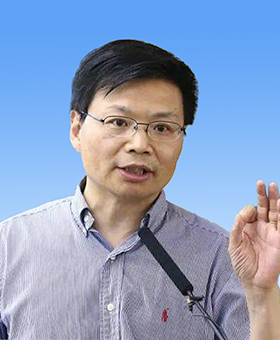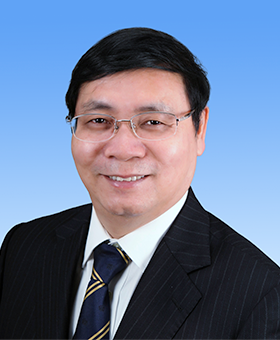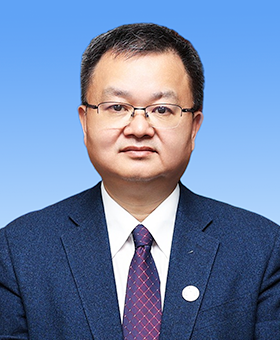In response to the new opportunities and challenges presented by the digital intelligence era to global higher education, Peking University has collaborated with nearly 31 universities worldwide to establish the Digital Intelligence International Development Education Alliance (DI-IDEA). Pursuant to the arrangements made by the Alliance, we are pleased to announce the launch of the 1st Global Digital Intelligence Education Innovation Competition.
- Introduction
- 1st Competition Video
- Competition Format
- Committee
- Eligibility for Participation
- Competition Schedule
- Award Settings
-


 Life SciencesNatural Product Protein Target Binding Prediction
Life SciencesNatural Product Protein Target Binding PredictionProject Lead:
SUN Xin
Institution:
Zhejiang University
-


 GeoinformaticsAccurate Vector Mapping of Buildings and Roads Based on Remote Sensing AI Digital Intelligence Technologies (RSAIVector)
GeoinformaticsAccurate Vector Mapping of Buildings and Roads Based on Remote Sensing AI Digital Intelligence Technologies (RSAIVector)Project Lead:
ZHENG Daoyuan
Institution:
Wuhan University
-


 Material SciencesConstruction of Potential Energy Surfaces for Complex Energy Materials Systems
Material SciencesConstruction of Potential Energy Surfaces for Complex Energy Materials SystemsProject Lead:
YAO Shuai
Institution:
Dalian University of Technology
-


 Application DevelopmentProtium - AI4S Workflow
Application DevelopmentProtium - AI4S WorkflowProject Lead:
QUE Haohui
Institution:
Shanghai University
-


 Cultural PreservationEmpowering the Inheritance and Innovation of Ethnic Brocade Weaving as Intangible Cultural Heritage through Digital Intelligence Technologies
Cultural PreservationEmpowering the Inheritance and Innovation of Ethnic Brocade Weaving as Intangible Cultural Heritage through Digital Intelligence TechnologiesProject Lead:
LI Jiaqin
Institution:
Hunan University
- Introduction
- 1st Competition Video
- Competition Format
- Committee
- Eligibility for Participation
- Competition Schedule
- Award Settings
- Introduction
- 1st Competition Video
- Competition Format
- Committee
- Eligibility for Participation
- Competition Schedule
- Award Settings

For the Innovation Track, the Organizing Committee will provide real-world problems from various disciplines, including life sciences, material sciences, and geoinformatics. Participating teams are tasked with devising solutions to these specific challenges. Competition groups will be divided by discipline for separate organization and review.
- Life Sciences
- Material Sciences
- Geoinformatics
Natural Product Protein Target Binding Prediction
This competition aims to enhance natural product drug discovery by integrating digital technology and biotechnology. Participants will use AI and computational biology to predict the binding affinity and selectivity of natural drug molecules to immune cell targets, developing workflows or algorithms to evaluate these interactions. LeadArt Biotechnologies will provide experimental support using an automated, probe-based proteomics platform to validate predictions.
Construction of Potential Energy Surfaces for Complex Energy Materials Systems
This competition track aims to use machine learning methods to construct potential energy surfaces for complex systems in energy materials. Participants are required to accurately capture interactions within complex material systems using advanced artificial intelligence techniques and develop efficient and reliable potential energy models. This process is intended to promote the research and development of new energy materials, providing scientific support and innovative breakthroughs for future energy solutions.
Accurate Vector Mapping of Buildings and Roads Based on Remote Sensing Al Digital Intelligence Technology (For short: RSAIVector)
The objective of this competition is to explore innovations in the field of remote sensing image vector mapping through the application of "intelligent" scientific and technological advancements, thereby promoting the development of intelligent education. Participating teams will use the designated dataset and employ artificial intelligence techniques to accomplish two key tasks: extracting building vector contours and mapping road vectors from remote sensing images. The Open Geospatial Engine (OGE) will serve as the testing platform. It is anticipated that leveraging "intelligent" scientific technologies will provide more effective geoinformatics solutions for practical applications such as autonomous driving and vehicle-road coordination.

For the Sustainable Development and Cultural Preservation Track, several pressing issues will be presented in this field, and participating teams are expected to propose solutions to these challenges. Teams may also select their own topics within the fields of sustainable development or cultural preservation and submit solutions.
The Organizing Committee will not specify topics for this track. Instead, participating teams are expected to choose their own topics that address global challenges in sustainable development or cultural preservation. They should also propose innovative, practical, and scalable solutions that utilize big data or AI technologies.

For the Application Development Track, participants will have the opportunity to unleash their creativity. We expect them to utilize new technologies and capabilities powered by artificial intelligence to create AI for Science applications that are innovative and practical under real-world research scenarios.
AI for Science Practice and Implementation
This competition encourages participants to use their imagination freely, starting from the new technologies and capabilities powered by AI, combining them with the actual scenarios of scientific research, and building innovative and valuable AI for Science software applications. The organizer provides participating teams with a robust development environment and infrastructure, full-process development training and technical guidance, team exchange platform and other support. At the same time, outstanding projects will have the opportunity to obtain incubation opportunities from professional investors, helping participating projects to further enter the market and achieve scale and commercial transformation.

- Academician of Chinese Academy of Sciences
- Dean of the College of Engineering, Peking University

- Academician of Chinese Academy of Sciences
- President of AI for Science Institute,Beijing
- Director of the International Center for Machine Learning at Peking University

- Academician of the Chinese Academy of Sciences
- Professor of the School of Remote Sensing Information Engineering, Wuhan University
- Director of the Institute of Aerospace Science and Technology,Wuhan University

- Academician of the Chinese Academy of Sciences
- Vice President of Peking University
- Chancellor of Shenzhen Graduate School, Peking University

- Academician of the Chinese Academy of Sciences
- President of Wuhan University
- Introduction
- 1st Competition Video
- Competition Format
- Committee
- Eligibility for Participation
- Competition Schedule
- Award Settings
-
1For the Innovation Track, participants must be full-time undergraduate, master’s, or doctoral students at institutions of higher education. For the Sustainable Development and Cultural Preservation Track and Application Development Track, participants must be full-time undergraduate, master’s, or doctoral students at institutions of higher education, or individuals who graduated from or left such institutions within the last three years (after January 1, 2021). The status of being a student is determined as of the official announcement date of the competition.
-
2Each participating team may have no more than ten members, with no more than five members from the same institution of higher education. Each individual may join only one project in the Innovation Track.
-
3Each participating team can choose whether to appoint instructors, with a maximum of three allowed. At least one team member, including participants and instructors, must be from a DI-IDEA member institution.
-
4After registration, no changes are permitted to the leaders, members, or instructors of the participating teams.
-
5During the competition, if any submitted materials are found to be false, or if any participants are caught plagiarizing or violating others’ intellectual property, the participants involved will be disqualified.
-
6Personnel involved in topic compilation and those with access to data from the competition organizers and technical support teams, as well as their close relatives, are prohibited from participating.
- Innovation Track - Life Sciences
- Innovation Track - Material Sciences
- Innovation Track - Geoinformatics
- Sustainable Development and Cultural Preservation Track
- Application Development Track
-
 Registration
Registration
- 06/27/2024 - 08/31/2024
- 06/27/2024 - 08/31/2024
- 06/27/2024 - 08/31/2024
- 06/27/2024 - 08/15/2024
- 06/27/2024 - 08/31/2024
-
 Preliminary Round
Preliminary Round
- 07/31/2024 - 09/10/2024
- 07/31/2024 - 09/10/2024
- 07/31/2024 - 09/10/2024
- 08/16/2024 - 08/20/2024
- 07/31/2024 - 09/10/2024
-
 Semi-final Round
Semi-final Round
- 09/15/2024 - 10/15/2024
- 09/15/2024 - 10/15/2024
- 09/15/2024 - 10/15/2024
- 09/10/2024 - 09/15/2024
- 09/15/2024 - 10/15/2024
-
 Final Round
Final Round
-
Late October, 2024 (exact date to be announced)
-
Late October, 2024 (exact date to be announced)
-
Late October, 2024 (exact date to be announced)
-
Late October, 2024 (exact date to be announced)
-
Late October, 2024 (exact date to be announced)

